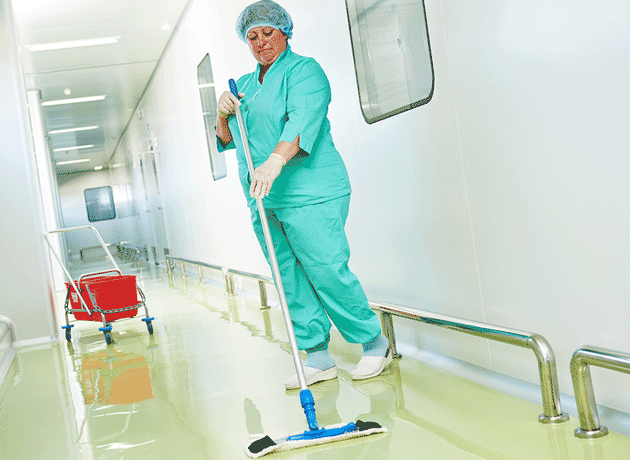The Benefits of Home Water Filtration Systems
I. Introduction
In our quest for healthier living, the importance of clean and safe drinking water cannot be overstated. Home water filtration systems have become increasingly popular as a solution to ensure that the water we consume is free from impurities. In this guide, we’ll explore the numerous benefits of installing a home water filtration system, transforming your tap water into a reliable source of quality hydration.
II. Clean and Purified Water
- Removal of Contaminants: One of the primary advantages of a home water filtration system is its ability to remove contaminants from your tap water. These contaminants can include impurities such as chlorine, sediment, bacteria, and harmful minerals. The result is cleaner, purer water that is safe for consumption.
- Improved Taste and Odor: Water filtration systems enhance the taste and odor of your tap water by eliminating unpleasant elements. Chlorine, which is commonly used in municipal water treatment, can impart a distinct taste and odor. Filtration systems effectively reduce or eliminate these sensory issues, providing water that is not only safe but also more enjoyable to drink.
III. Health Benefits
- Removal of Harmful Substances: Waterborne contaminants, such as lead, pesticides, and heavy metals, pose potential health risks. A home water filtration system works to remove these harmful substances, safeguarding you and your family from the adverse effects of prolonged exposure.
- Protection from Waterborne Diseases: Filtration systems can act as a barrier against waterborne diseases caused by bacteria, parasites, and other microorganisms. By ensuring that these pathogens are filtered out, you reduce the risk of water-related illnesses, promoting better health and well-being.
IV. Environmental Impact
- Reduction of Plastic Waste: With a home water filtration system, there is a significant reduction in the need for bottled water. This eco-friendly choice helps minimize plastic waste, contributing to environmental conservation. It’s a sustainable approach that aligns with the growing awareness of reducing single-use plastics.
- Energy Efficiency: Compared to the energy-intensive process of producing and transporting bottled water, home water filtration systems are more energy-efficient. They provide a convenient and sustainable alternative, allowing you to access clean water without the environmental costs associated with bottled water production.
V. Cost Savings
- Elimination of Bottled Water Expenses: Investing in a home water filtration system can lead to long-term cost savings by eliminating the need for bottled water. The initial investment in a filtration system is typically offset by the ongoing savings from not purchasing bottled water regularly.
- Reduced Plumbing Repair Costs: Water filtration systems can also contribute to reduced plumbing repair costs. By filtering out minerals and impurities that can lead to pipe corrosion and scaling, these systems help maintain the integrity of your plumbing infrastructure, potentially saving you from expensive repairs.
VI. Convenience and Accessibility
- On-Demand Access: Having a home water filtration system means you have on-demand access to clean water. There’s no need to rely on bottled water or worry about the inconvenience of running out. You can enjoy a continuous supply of purified water directly from your tap.
- Ease of Maintenance: Most modern water filtration systems are designed for easy maintenance. Regular filter replacements, typically recommended every few months, are a straightforward process. This convenience ensures that your system continues to operate at peak efficiency.
VII. Customization Options
- Tailored Filtration Solutions: Home water filtration systems come in various types, allowing you to choose a solution that aligns with your specific water quality concerns. Whether it’s a carbon filter for taste and odor issues or a reverse osmosis system for comprehensive purification, you can tailor the filtration process to your unique needs.
- Integration with Appliances: Some water filtration systems can be integrated with appliances such as refrigerators or faucets, providing filtered water directly from these sources. This level of customization enhances the overall convenience of accessing clean water throughout your home.
VIII. Conclusion
Investing in a home water filtration system offers a multitude of benefits, from ensuring the safety and purity of your drinking water to contributing to environmental sustainability and cost savings. With advancements in filtration technology, these systems have become an integral part of modern households, providing a reliable source of clean water for you and your family.
FAQs
Q: How often should I replace the filters in a home water filtration system? A: The frequency of filter replacement depends on the type of filtration system and water quality. In general, it’s recommended to replace filters every 3 to 6 months. Follow the manufacturer’s guidelines for your specific system.
Q: Can a water filtration system remove all contaminants from tap water? A: Water filtration systems vary in their capabilities. While they can remove many contaminants, no system can eliminate every type of impurity. Choosing the right filtration system for your specific water quality concerns is crucial.
Q: Are home water filtration systems easy to install? A: Many home water filtration systems are designed for easy installation and can be installed as a do-it-yourself project. However, some complex systems may require professional installation. Always follow the manufacturer’s instructions for proper installation.
Q: Can a water filtration system improve the quality of well water? A: Yes, a water filtration system can improve the quality of well water by removing impurities, minerals, and contaminants. However, the type of filtration system needed may vary based on the specific characteristics of the well water. Conduct a water test to determine the appropriate filtration solution.
Q: Do water filtration systems waste water? A: Some water filtration systems, like reverse osmosis, can produce wastewater as part of the filtration process. However, modern systems often include features to minimize water waste, such as recycling and efficiency improvements. Consider water-saving options when choosing a filtration system.
Source Links:







